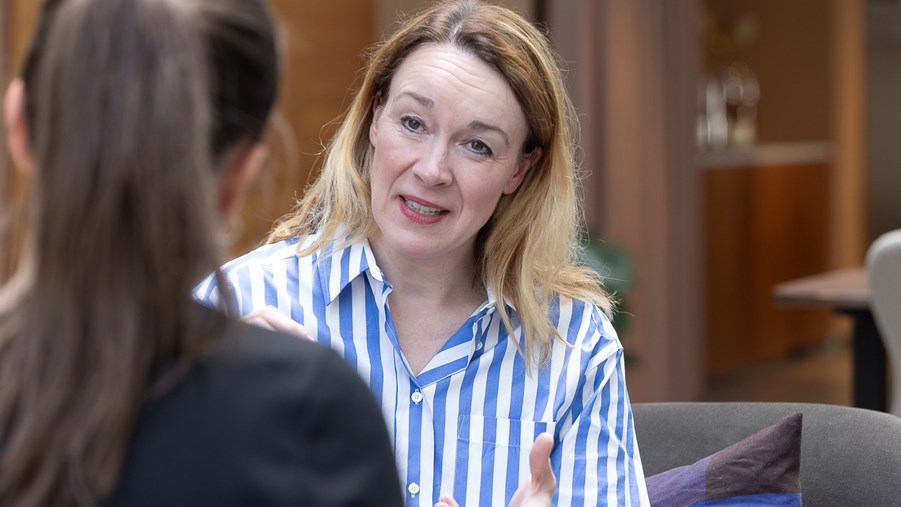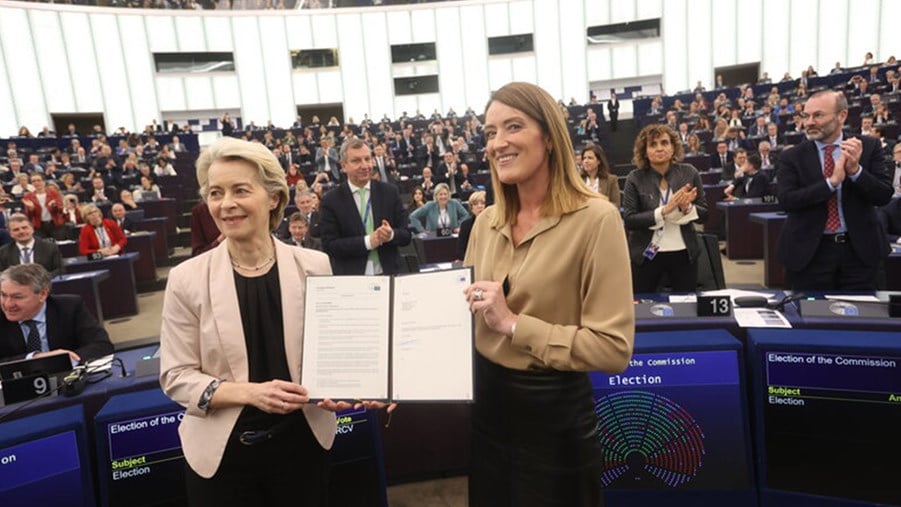
Following the autumn hearing process, the new EU Commission is in place. Ursula von der Leyen retains her firm grip on the presidential gavel and, at first glance, it might not seem that things are much different – but there are major changes. How does this impact the forest industry? The newly appointed Director and Head of SFIF’s Brussels office explains.
The new EU Commission was babtised this summer to become ‘Investment Commission’. Election results, which strengthened right-wing parties, signify that there are new priorities. The pandemic and Russia’s invasion of Ukraine have also altered Europe’s approach to the wider world. The previous mandate’s initiatives with focus on green deal, sustainability and climate have reached implementation phase, and the new Commission is refocusing on improving competitiveness and strengthening security. The new geopolitical situation – with Russia at war, a turbulent Middle East and a divided USA – means that Europe no longer has the luxury of choosing what it wants to do and focus on.
"We need to invest in what Europe needs in order to manage the new challenges. We need to improve our global competitiveness, and we need to ensure that we establish our own security," explains Kaisa Soro-Pesonen.
What does this mean for the Swedish forest industry?
"In this situation, the EU can no longer focus on piling up detailed new regulation on climate or environmental policy in the same way as might have been done during the previous term. The goals remain in place – we will continue working with climate goals and biodiversity – but the tools are different."
In addition to less regulation, EU seeks to simplify existing regulation.
"The focus will likely be on improving the quality of EU legislation, with better conditions for implementation and shorter permitting processes. The forest industry has been asking for this for a long time," Soro-Pesonen says.
"Conditions are more favourable for the industry to have its voice heard. Now, at the beginning of the new term, we have a window of opportunity to convey our message about solutions the forest can provide."
What are the challenges facing the forest industry?
"Many people still don’t realise the role forests can play in climate action. They view a forest as a carbon sink, and often stress the importance of protection and conservation. I rarely hear conversations in Brussels about the importance of managing and using forests in a way that benefits both the climate and biodiversity."
After more than 20 years in Brussels, and with extensive knowledge of the convoluted processes of EU institutions, Soro-Pesonen has a keen insight into the political chatter.
"Sweden and Finland have become interesting, key member states in a way that we ourselves may have not yet realised," she says. "While this is mainly due to NATO membership, the UK’s exit has created a vacuum and large member states have become weaker for domestic political reasons. Up in the north, we’re used to sitting on the fringes and thinking no one is listening to us."
Matching priorities
It’s not only new NATO membership that Sweden and Finland have in common. They also top the list of Europe’s most forest-rich countries, and the countries’ forest industries have many similarities.
"Forests provide a European raw material used in Europe, products manufactured in Europe, most of our value chains and jobs are in Europe. The forest industry is a strong asset to have in terms of resilience – for all of Europe, so it matches the Commission’s priorities really well," she concludes.
Three quick questions
What are the most important upcoming issues for the forest industry?
"The Clean Industrial Deal – which is coming up in February – will formulate a framework for promoting industrial policies that accelerate the green transition. The Circular Economy Act is a bill that highlights the importance of circularity, both social and economic. And the updated Bioeconomy Strategy is in the pipeline – it will probably be proposed in a year, and the main responsibility of the preparations lies with Commission's department for environment policy, headed by Commissioner Jessika Roswall."
Swedish Commissioner Jessika Roswall is responsible for environment, water resilience and a competitive circular economy, which includes forestry issues – what does this mean for the Swedish forest industry?
"It’s an important portfolio. But it is good to keep in mind that pursuant to the Treaties, Commissioners are tasked with serving the interests of Europe as a whole vis-à-vis the member states and the Parliament. Jessika Roswall’s job is to identify solutions that promote the entire Union – she does not represent her own member state."
How can we increase interest in Swedish forests?
"We need to become even better at communicating the climate benefit, our sustainable forestry methods that also benefit biodiversity, and the importance of substitution effect using fossil-free products from the forest. The forest should be seen as a key resource that contributes a lot to European competitiveness and resilience. It's also important that Sweden keeps forestry issues at the top of the agenda in Brussels and also to emphasise the forest’s importance for our general preparedness."


